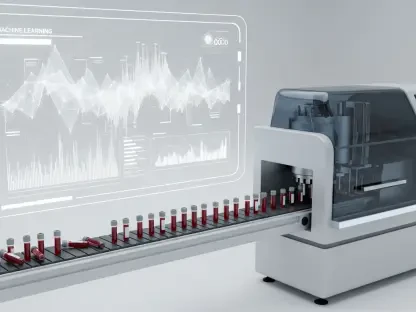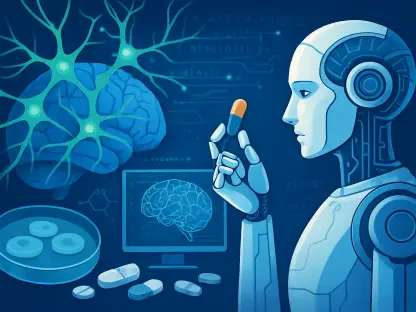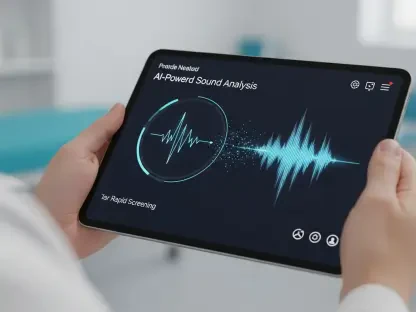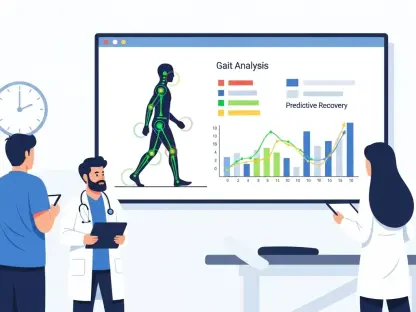I’m thrilled to sit down with Ivan Kairatov, a renowned biopharma expert with extensive experience in research and development, and a deep understanding of technology and innovation in the industry. Today, we’re diving into the groundbreaking world of AI-driven drug discovery, focusing on a pioneering platform that’s set to transform how biotechs approach R&D. Our conversation explores the motivations behind sharing cutting-edge AI models, the technology that powers this initiative, the importance of collaboration in advancing drug discovery, and how such platforms align with broader industry trends toward reducing traditional testing methods. Let’s get started.
How did the idea of creating a platform like TuneLab come about, and what was the driving force behind sharing AI drug discovery models with other biotechs?
The concept for TuneLab emerged from a recognition that drug discovery is becoming increasingly complex and data-driven. We saw an opportunity to leverage years of internal research and significant data investments—over $1 billion worth—to create models that could benefit not just us, but the broader biotech community. The driving force was really about accelerating innovation across the industry. By sharing these AI tools, we’re enabling smaller biotechs to access cutting-edge technology they might not otherwise have, fostering collaboration, and ultimately speeding up the development of new therapies for patients.
What kind of impact do you envision a platform like TuneLab having on the biotech and pharmaceutical landscape?
I think TuneLab has the potential to be a game-changer. It democratizes access to high-quality AI models, which can significantly lower the barriers for smaller companies or startups to engage in sophisticated drug discovery. This could lead to faster identification of promising compounds, more efficient preclinical workflows, and ultimately, a higher success rate for bringing drugs to market. Beyond that, it encourages a collaborative ecosystem where shared learning improves the models over time, benefiting everyone involved.
What sets TuneLab apart from other AI platforms currently available in the pharmaceutical space?
TuneLab stands out because of the depth of data it’s built on and the unique federated learning approach. The models are trained on extensive, proprietary research data, which gives them a robust foundation. Additionally, the federated setup allows partners to run these models on their own infrastructure without sharing sensitive raw data. Instead, only model updates are exchanged, ensuring data privacy while still enabling collective improvement. That balance of accessibility, security, and quality is quite distinctive.
Can you walk us through how the federated learning approach works in TuneLab and why it’s so critical for data protection?
Absolutely. Federated learning means that the AI models are deployed locally on a partner’s own systems. They can train or fine-tune the models using their own data without ever sending that data back to a central server. Instead, only the updates or improvements to the model—like adjusted parameters—are shared. This is crucial for data protection because it minimizes the risk of exposing proprietary or sensitive information, which is a huge concern in biopharma. It builds trust among partners and allows for collaboration without compromising confidentiality.
What kind of technological setup or infrastructure do biotechs need to effectively use TuneLab’s models on their end?
Biotechs need a solid computational infrastructure to run these models locally, including access to high-performance computing resources or GPUs, since AI models can be resource-intensive. They also need the ability to integrate the models into their existing workflows, which might require some data engineering expertise. TuneLab is supported by platforms like Rhino Federated Computing and NVIDIA FLARE, which help streamline the process of deploying and fine-tuning models, but partners still need a baseline of technical capability to make the most of it.
Can you share some insights into the types of models available through TuneLab and how they support drug discovery efforts?
TuneLab offers 16 ready-to-use models that cover a range of discovery and preclinical tasks. For example, there are predictive models for ADMET—absorption, distribution, metabolism, excretion, and toxicity—which help assess how a compound might behave in the body early on. Other models might focus on identifying potential drug targets or optimizing lead compounds. These tools allow researchers to make data-driven decisions much earlier in the process, saving time and resources by filtering out less promising options before they reach expensive testing phases.
How do partnerships play a role in the evolution of TuneLab, and what value do these collaborations bring to both sides?
Partnerships are at the heart of TuneLab’s growth. By working with innovative startups and biotechs, we gain access to fresh perspectives and diverse datasets that help refine our models. For instance, feedback and updates from partners directly contribute to improving model performance over time. On the other side, partners get to leverage our advanced tools to enhance their own R&D efforts, whether it’s for specific disease areas like cancer or building new predictive models for small molecules. It’s a symbiotic relationship that drives progress for everyone.
How does TuneLab align with broader industry trends, such as the push to reduce preclinical animal testing through alternative methodologies?
TuneLab is very much in step with industry shifts, particularly the FDA’s recent roadmap to reduce reliance on animal testing by adopting new approach methodologies, or NAMs. AI-based models like those in TuneLab can simulate biological interactions or predict outcomes that would traditionally require animal studies. This not only addresses ethical concerns but also speeds up the research process and cuts costs. It’s part of a larger movement to make drug development more efficient and humane, and we’re proud to contribute to that.
Looking ahead, what is your forecast for the role of AI and collaborative platforms like TuneLab in the future of drug discovery?
I believe AI and collaborative platforms are poised to become the backbone of drug discovery in the coming decades. We’re already seeing estimates that R&D spending on AI could reach $30 to $40 billion by 2040, and that’s because these tools can tackle the immense complexity of biological systems in ways traditional methods can’t. Platforms like TuneLab will likely expand, fostering even larger networks of collaboration across academia, startups, and big pharma. The future will be about integrating AI with other emerging technologies—think digital twins or advanced genomics—to create a more predictive, personalized approach to medicine. It’s an exciting time to be in this space.









